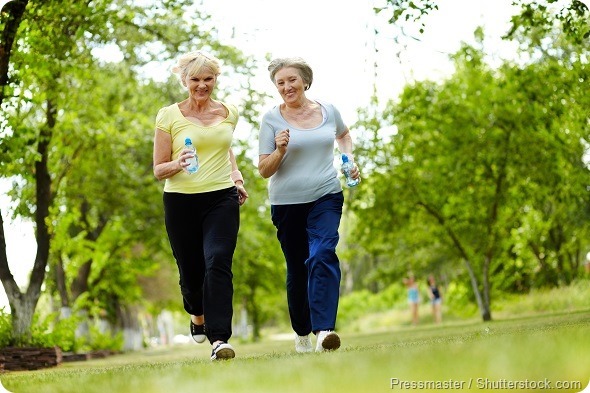Women who follow a healthy lifestyle may be cutting their risk of stroke by more than 50%, report Swedish researchers.
A study of 31,696 Swedish females showed that those with a body mass index (BMI) below 25 who ate a healthy diet, were physically active, did not smoke and only drunk in moderation were 54% less likely to have a stroke than women with none of these five factors.

“These results are exciting because they indicate that a healthy diet and lifestyle can substantially reduce the risk of stroke, and these are lifestyle choices that people can make or improve,” says lead author Susanna Larsson from the Karolinska Institutet in Stockholm, Sweden.
She adds:
Because the consequences of stroke are usually devastating and irreversible, prevention is of great importance
For the study, the women (mean age 60 years) completed a 350-item lifestyle questionnaire before being followed-up for an average of 10 years. A healthy diet was defined as being in the top half of a food score that measured how regularly the women ate healthy foods such as vegetables, fruits and low-fat dairy. Moderate alcohol drinking was defined as 3 to 9 drinks per week and being physically active was defined as engaging in at least 40 minutes of walking or biking a day, as well as one hour per week of more vigorous exercise.
The majority of the women said they had two or three of the healthy factors, but only 589 had all five and 1,535 had none.
As reported in the journal Neurology, a total of 1,554 strokes occurred during follow-up, including 1,155 cerebral infarctions, the most common form of stroke.
Larsson and team found that with each additional healthy lifestyle factor, the incidence of stroke steadily decreased among the women.
Compared with women who had none of the factors, those with all five were 62% less likely to suffer from cerebral infarction and 54% less likely to suffer from any form of stroke. Even women who stuck to one or two healthy factors reduced their stroke risk by a significant 24%.
"We were surprised about the quite substantial reduction in stroke risk among women who adhered to all five low-risk behaviors,” says Larsson. However, people don’t need to fall into all five health categories to see a reduction in stroke risk, she adds:
Adhering to one or two lifestyle factors is better than adhering to none.